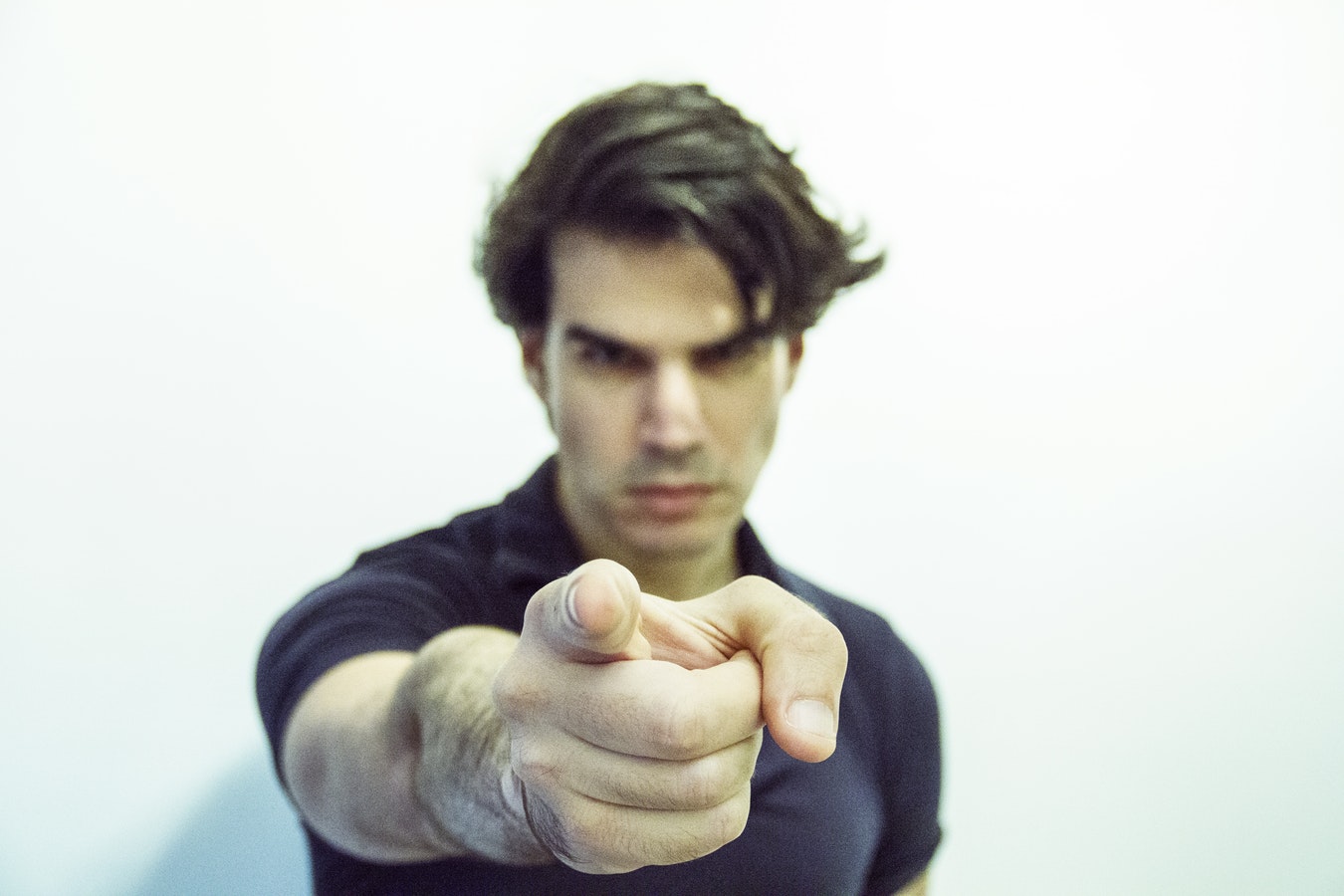Blame Game – What Can I Do?
Author: Charles StanleyFive-year-old Jane grabs a toy from her sister’s hand, and her sister starts to squeal loudly.
She tries to get the toy back from Jane by pulling it out of her hands. Before long, the ruckus is so loud that it gets Mom’s attention, and Mom asks the key question: “Okay, who started this?” Immediately, two small fingers point accusingly, with each sister saying obstinately, “She did!”
The man had worked in the accounting office for years, every day doing his job faithfully. He never got the promotions his colleagues did, in spite of how hard and well he worked.
When the easy opportunity came for him to siphon some money away from client accounts, he took it. The company soon discovered his malfeasance and prosecuted him for the crime, but he sincerely felt the punishment was unjust. After all, he had not been treated “fairly,” he reasoned, and it was the company’s fault that he was driven to such extreme measures.
A Big Problem
Playing the blame game can be a consuming problem. If a person persists in maintaining that someone else is to blame for his wrongdoing, this perception can radically distort his view of reality. What makes the blame game such a spiritual threat is that it has become a part of the thinking of our culture at large.
reality. What makes the blame game such a spiritual threat is that it has become a part of the thinking of our culture at large.
Many believe that a criminal is not responsible for his crime because he is really the victim of society or a bad upbringing. Others say that we should be allowed to say anything we want to in public, no matter how ugly, because we must express our emotions to be healthy. If this “no fault” thinking is carried to its logical conclusion, then ultimately no one is responsible for his behavior at any time.
This tendency to blame others isn’t a new one, however; the very first man and the very first woman tried it in the Garden of Eden. Do you remember what Adam said when God approached him shortly after his sin? Instead of admitting what he had done, Adam said: “‘The woman whom Thou gavest to be with me, she gave me from the tree, and I ate'” (Genesis 3:12).
Then God turned to Eve, and she said: “‘The serpent deceived me, and I ate'” (v. 13). The fact is that both of their statements are true. Adam was tempted by Eve, and Eve was presented with a deliberately deceitful argument. However, sin is never justifiable. It does not make any difference what motivated or prompted it. In God’s eyes, sin, or disobedience to Him, is never acceptable.
Responsible for Sin
God forgave Adam and Eve, and He even gave them the hope of the coming Messiah, Jesus Christ. But He held them responsible for their sin in that He treated them as free moral agents who each made the personal choice to disobey Him. Therefore, they each needed to be forgiven and restored to fellowship with Him.
Why is it so much easier to do what Adam and Eve did, to “pass the buck” as the saying goes? Sin is shame and guilt-inducing. Adam and Eve ran to hide when they heard God walking in the garden in the cool of the day. (Genesis 3:8). Instinctively, they knew they were wrong, and the fears of exposure, failure, and change seemed too much to bear. Because these fears are so large and ominous, it feels less painful to live with a false sense of blamelessness rather than own up to the truth.
Blaming others encourages you to sin more.
If you do not admit your own responsibility in the situation, it is common to adopt a “victim” mentality, the belief that someone is literally forcing you to do something you would not choose otherwise. Often, the process of rationalizing sin leads to a weakened view of the sin. You might begin to harbor thoughts such as, “Oh, it’s not so bad”; “No one would blame me”; or “Anyone in my position would do the same thing.”
Blaming others promotes disharmony and bitterness.
The spiritual principles that operate here can be a little more complex and subtle, especially when the emotional influence is serious.
If you walk with a friend past a store, and she pressures you verbally to take something because no one is looking, you experience an emotional influence to commit an offense. You may choose to give in and then blame her for your wrong, with anger and bitterness at her for trying to push you into sin. As persuasive as this friend’s influence was, it is much easier to sort through the issues here to get to the real problem–your own desire to steal.
 But let’s say for example that a young woman was abused as a child. Was she the victim of a terrible crime? Absolutely, and the person who abused her is responsible to God and earthly authorities for his sin.
But let’s say for example that a young woman was abused as a child. Was she the victim of a terrible crime? Absolutely, and the person who abused her is responsible to God and earthly authorities for his sin.
This girl grew up with shattered emotions, a fractured self-image, and a highly negative view of relationships with men. As an adult, she may act out of her pain by responding to even simple questions with cynicism and sarcasm. She still struggles with anger against the man who hurt her.
Is this woman responsible for her behavior today? It is tempting to say no, yet we are responsible for our actions. Striking out at others does not help to ease the pain. Instead, God wants us to heal our hurts. When we turn to Him, we find there is no need to continue playing the blame game, for within His presence is hope and a chance to begin anew.
The steps to this freedom are simple and straightforward, and although they can be painful to move through, they are essential to growing closer to the Lord and experiencing the liberty He designed for you. The steps to freedom can be simple but painful
Be honest about your sin.
You don’t have to run and hide when you sense the Spirit of God telling you that you are wrong. God tells you because He wants you to come to Him with the problem. When thoughts of blaming others come to mind, refuse them. Say, “It does not matter how much I hurt or how much ___________ (name) hurt me, I am the one who did it.” This statement may be the hardest one you have ever uttered before the Lord, but it will be one of the best. Only when you humble yourself before Him are you ready for the healing to begin.
Forgive the person(s) involved and forgive yourself.
When someone else is closely involved in your sin, whether by direct influence or through a past hurt, he or she is intimately tied to the emotions surrounding your sin. You may not even be aware you are blaming the person. A good test of your feelings would be to ask the question, “When I think about the sin or experience guilt, do I feel anger towards the other person who was there? Am I secretly hoping that he feels miserable about it, too?”
As you pray for forgiveness, tell the Lord you forgive the person through His power and on the basis of His forgiveness for you. Let the offender go forever. This person is in God’s hands, and God will deal with him as an individual. You alone stand before Your Savior. You are forgiven. (1 John 1:9) You are whole and clean and righteous before Him, and no one can tell you otherwise.
